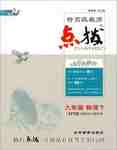题目内容
I lost my sight when I was four years old by falling off a box car in a freight (货运) yard in Atlantic City and landing on my head. Now I am thirty-two. I can slightly 1 the brightness of sunshine and what colour red is. It would be wonderful to see again,but 2 can do strange things to people. ;
It 3 to me the other day that I might not have come to love life as I do if I hadn’t been 4 . I believe in life now. I am not so sure that I would have believed in it so 5,otherwise. I don’t mean that I would prefer to go without my 6 I simply mean that the loss of them made me 7 the more what I had left.
Life,I believe,asks a continuous series of 8 to reality. The more readily a person is able to make these adjustments,the more 9 his own private world becomes. The adjustment is never easy. The hardest 10 I had to learn was to believe in myself. That was 11 If I hadn’t been able to do that. I would have 12 and become a chair rocker on the front perch (门廊) for the rest of my life.
It took me years to discover and 13 this belief. It had to start with the most elementary things. Once a man gave me an indoor baseball. I thought he was 14 at me and I was hurt. “I can’t use this ,” I said. “ 15 it with you”’ he urged me ,“and roll it around. ” The words stuck in my head. “Roll it around!” By rolling the ball I could hear 16 it went. This gave me an idea on how to achieve a goal I had thought 17 : playing baseball. At Philadelphia’s Over brook School for the Blind I invented a successful variation of 18 We called it ground ball.
All my life I have set ahead of me a series of goals and then tried to reach them,one at a time. I had to learn my 19 It was no good to try for something I knew at the start which was wildly out of reach because that only invited the bitterness of 20 I would fail sometimes anyway but on average I made progress.
( ) 1. A. forget B. see
C. ignore D. remember
( ) 2. A. happiness B. fortune
C. misfortune D. wealth
( ) 3. A. occurred B. happened
C. agreed D. applied
( ) 4. A* clever B. blind
C. foolish D. lucky
( ) 5. A. hardly B. quickly
C. roughly D. deeply
( ) 6. A. hands B. arms
C. eyes D. legs
( ) 7. A. appreciate B. arrive
C. believe D. accept
( ) 8. A. employments B. investments
C. settlements D. adjustments
( ) 9. A. meaningful B. painful
C. fearful D. careful
( ) 10. A. pleasure B. lesson
C. enjoyment D. trouble
( ) 11. A. unnecessary B. horrible
C. unpractical D. essential
( ) 12. A. broken out B. broken through
C. broken down D. broken off
( ) 13. A. strengthen B. weaken
C. shorten D. darken
( ) 14. A. smiling B. laughing
C. wondering D. glaring
( ) 15. A. Bring B. Borrow
C. Take D. Lend
( ) 16. A. where B. when
C. why D. how
( ) 17. A. possible B. potential
C. probable D. impossible
( ) 18. A. basketball B. baseball
C. football D. volleyball
( ) 19. A. conversations B. limitations
C. congratulations D. educations
( ) 20. A. achievement B. process
C. success D. failure
[文章大意]本文讲述了灾难挫折是如何成就一个人的。作者在年幼时失明,在经历了多年的彷徨无助之后,终于在亲人朋友的帮助下,找回了自信,学会了如何面对困难,并且在纷杂的社会中找到了自己的一席之地,实现了自己一个又一个的梦想。
1. D后文"It would be wonderful to see again…"暗示出了意外之后"我"是看不见的,只能是依稀"记得"。故选D.
2. C如果能够再次看见固然好,但厄运也会给人们带来新的东西。前文中作者因意外失明,因此是"厄运,不幸的事情"。故选C.
3. A apply to适用于。
It occurred to sb that...某人突然想起……。故选A.
4. B如果"我"不曾看不见,"我"不会像现在这样热爱生活。故选B.
5. D "我"都不敢确定"我"本可以这么相信生活的。前文提到作者love life,故这里表达"深深地相信",故选D.
6. C前文作者说"要不是因为眼睛看不见”我'不会如此热爱生活",这里接着说"当然”我'不是说我宁愿眼睛看不见"。故选 C.
7. A视力的失去更让"我"珍惜"我"所拥有的,故选A.
8. D "我"认为生活就是不断对现实做出调整。根据后文make these adjustments可知此处选D.
9. A meaningful有意义的;painful痛苦的;.fearful害怕的; careful小心的。一个人越是乐意做出调整,那他的个人世界就会变得越有意义,故选A.
10. B pleasure令人髙兴的事;lesson教训,经验;enjoyment享受;trouble麻烦。最难学的一个经验是相信自己。
learn a lesson学习一个经验。故选B.
11. D unnecessary不必要的;horrible恐怖的;unpractical不切实际的;essential必要的,至关重要的。如果没有学会它, "我"将只会在门前的摇椅上度过"我"的余生。由此可知,那个教训对作者来说是至关重要的。故选D.
12. C break out爆发;break through突破jbreak down (机器,人) 垮掉;break off中断,断绝。根据后文语境"并且在门前的摇椅上度过'我'的余生"可知选C.
13. A strengthen加强;weaken削弱;shorten縮短;darken使变暗。根据语境"'我'花了很多年的时间去发现并坚定这个信念",前文说这个教训很重要,所以应该是"加强",故选A.
14. B语境"'我'以为他在嘲笑我”我'很伤心"。
laugh at sb 嘲笑某人。故选B.
15. C根据语境"拿着,你可以把它放在地上滚",选C.
16. A语境"通过听声音'我'可以知道它往哪里滚去了"。
where引导宾语从句。故选A.
17. D possible可能的;potential潜在的;probable大概的;im?possible不可能的。语境"这使'我'想到了怎样实现'我'认为不可能的那个目标:打棒球",前文在别人给作者球玩的时候作者说"I can't use this",结合语境可知作者认为他玩棒球是不可能的。故选D.
18. B前文中提到作者玩棒球,因此推测这里也应该是"'我' 发明了一种棒球的新玩法",故选B.
19. B conversation谈话;limitation限制;congratulation祝贺; education教育。根据语境"'我'必须学会正视自己的不足",前文作者说要学会不断对生活做出调整,所以要知道自己的不足才能做出调整。故选B.
20. D achievement成就;process进步;success成就;failure 失败。根据语境"尝试一些超出能力之外的事情是没有意义的,因为它只会产生失败的苦涩",这一句也再一次呼应前文中作者主张的"生活需要不断地对现实做出调整"。故选D.

 特高级教师点拨系列答案
特高级教师点拨系列答案